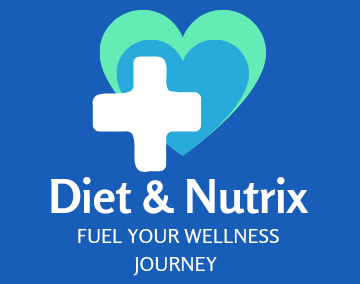Nourish Your Mind: The Best Diet for Mental Health
Mental health is an essential component of overall well-being. While therapy, medication, and lifestyle changes play crucial roles in maintaining mental health, diet is a powerful yet often overlooked factor. Eating the right foods can significantly impact your mood, energy levels, and cognitive function. In this blog, we’ll explore the best diet for mental health and how specific nutrients can support your mind.
The Connection Between Diet and Mental Health
How Nutrition Affects the Brain – Mental Health
The brain is an energy-intensive organ, consuming about 20% of the body’s calories. It requires a variety of nutrients to function optimally. Poor nutrition can lead to brain fog, mood swings, and even mental health disorders. Conversely, a balanced diet rich in essential nutrients can enhance brain function and improve mental clarity.
The Role of Gut Health
The gut-brain axis is a bidirectional communication system between the gastrointestinal tract and the brain. A healthy gut microbiome produces neurotransmitters like serotonin and dopamine, which influence mood and cognition. Therefore, maintaining gut health through diet is crucial for mental well-being.
Key Nutrients for Mental Health
Omega-3 Fatty Acids
Omega-3 fatty acids, found in fatty fish like salmon, mackerel, and sardines, are essential for brain health. They support neurotransmitter function, reduce inflammation, and have been linked to lower rates of depression and anxiety.
B Vitamins
B vitamins, particularly B6, B9 (folate), and B12, play a vital role in brain function. They help produce neurotransmitters and maintain healthy nerve cells. Leafy greens, legumes, eggs, and meat are excellent sources of B vitamins.
Antioxidants
Antioxidants protect the brain from oxidative stress and inflammation, which are linked to mental health disorders. Foods rich in antioxidants include berries, nuts, seeds, and dark chocolate.
Magnesium
Magnesium is involved in over 300 biochemical reactions in the body, including those related to brain function. It helps regulate neurotransmitters and reduce stress. Good sources of magnesium include leafy greens, nuts, seeds, and whole grains.
Zinc
Zinc is crucial for brain signaling and has been shown to reduce symptoms of depression. Foods high in zinc include meat, shellfish, legumes, and seeds.
Vitamin D
Vitamin D deficiency has been linked to depression and cognitive decline. Sunlight exposure and foods like fatty fish, fortified dairy products, and egg yolks can help maintain adequate levels of vitamin D.
Foods to Boost Mental Health
Fatty Fish
As mentioned, fatty fish like salmon, mackerel, and sardines are rich in omega-3 fatty acids, which support brain health and reduce inflammation.
Leafy Greens
Leafy greens such as spinach, kale, and Swiss chard are packed with B vitamins, antioxidants, and magnesium, all of which are essential for mental well-being.
Berries
Berries like blueberries, strawberries, and blackberries are high in antioxidants that protect the brain from oxidative stress and inflammation.
Nuts and Seeds
Nuts and seeds, including walnuts, almonds, flaxseeds, and chia seeds, provide a variety of nutrients like omega-3 fatty acids, magnesium, and antioxidants.
Whole Grains
Whole grains such as quinoa, brown rice, and oats are excellent sources of complex carbohydrates, which provide a steady supply of energy to the brain.
Fermented Foods
Fermented foods like yogurt, kefir, sauerkraut, and kimchi contain probiotics that support gut health and, consequently, mental health.
Dark Chocolate
Dark chocolate is rich in antioxidants and can boost mood by increasing serotonin levels in the brain. Choose dark chocolate with at least 70% cocoa for the best benefits.
Foods to Avoid for Better Mental Health
Sugary Foods
High sugar intake can lead to energy crashes and mood swings. It’s best to limit sugary snacks, desserts, and sugary beverages.
Processed Foods
Processed foods often contain unhealthy fats, added sugars, and preservatives, which can negatively impact mental health. Opt for whole, unprocessed foods whenever possible.
Caffeine
While moderate caffeine intake can boost mood and alertness, excessive consumption can lead to anxiety and sleep disturbances. Limit your caffeine intake to maintain mental balance.
Alcohol
Alcohol is a depressant and can disrupt sleep patterns, leading to worsened mood and cognitive function. Consume alcohol in moderation or avoid it altogether for better mental health.
Practical Tips for a Mental Health-Friendly Diet
Plan Your Meals
Planning your meals ahead of time ensures you include a variety of nutrient-dense foods in your diet. It also helps prevent impulsive, unhealthy food choices.
Stay Hydrated
Dehydration can negatively affect mood and cognitive function. Aim to drink at least eight glasses of water a day to stay hydrated.
Eat Regularly
Skipping meals can lead to energy dips and mood swings. Aim to eat regular, balanced meals to maintain stable blood sugar levels and energy throughout the day.
Practice Mindful Eating
Mindful eating involves paying attention to your food and eating without distractions. This practice can help you enjoy your meals more and make healthier food choices.
Conclusion
Diet plays a crucial role in mental health. By incorporating nutrient-rich foods like fatty fish, leafy greens, berries, nuts, seeds, and whole grains into your diet, you can support your brain function and improve your mood. Remember to avoid sugary, processed foods, and excessive caffeine and alcohol. Small, consistent changes to your diet can make a significant difference in your mental well-being. Nourish your mind and body with the right foods, and you’ll be on your way to better mental health.
For more tips and personalized advice on nutrition, visit Diet and Nutrix


helpful